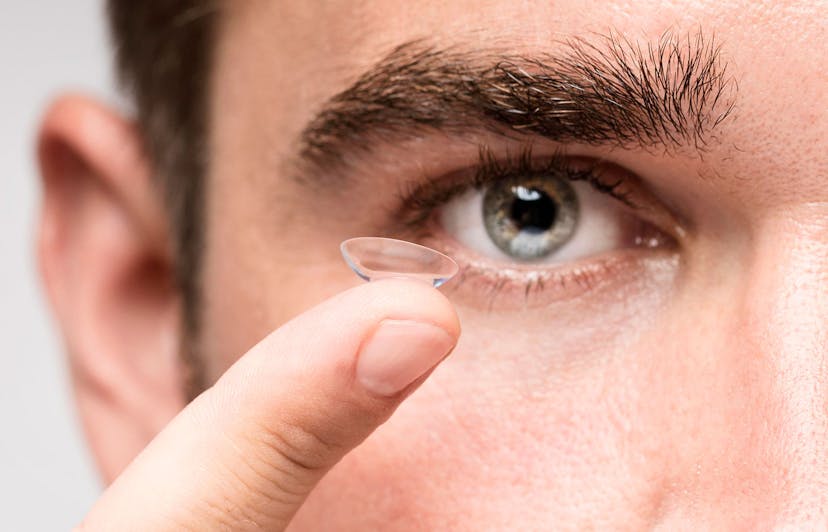
In our increasingly digitalised world, where screens have become omnipresent in both professional and personal spheres, prioritising eye health has never been more critical. Prolonged exposure to digital screens, including smartphones, computers, and tablets, has been linked to a myriad of vision-related issues, ranging from digital eye strain to accelerated age-related degeneration. As a leading authority in medical care, we at My-Clinic recognise the urgent need for individuals to adopt proactive measures to safeguard their eye health amidst the digital deluge. In this comprehensive article, we will delve into the concept of digital detoxing and elucidate its paramount importance in preserving optimal eye health for generations to come.
Understanding Digital Detoxing
Digital detoxing, also known as screen detoxing or screen time reduction, refers to the deliberate and strategic reduction of time spent engaging with digital devices, particularly screens. The goal of digital detoxing is to mitigate the adverse effects of prolonged screen exposure on eye health, as well as overall well-being. This entails not only reducing screen time but also incorporating regular breaks, implementing screen-free zones, and prioritising activities that promote physical, mental, and emotional well-being.

The Adverse Effects Of Excessive Screen Time On Eye Health
Prolonged exposure to digital screens can have a profound impact on eye health, leading to a range of vision-related issues that compromise visual comfort and acuity. One of the most common consequences of excessive screen time is digital eye strain, also known as computer vision syndrome (CVS). Symptoms of digital eye strain include dryness, irritation, blurred vision, headaches, and fatigue, all of which can significantly impair productivity and quality of life.
Moreover, the blue light emitted by digital screens has been shown to disrupt sleep patterns, suppress melatonin production, and contribute to eye strain and fatigue. Chronic exposure to blue light may also increase the risk of age-related macular degeneration (AMD), a leading cause of vision loss among older adults. Additionally, excessive screen time has been linked to a rise in myopia (nearsightedness) rates, particularly among children and young adults, further underscoring the importance of digital detoxing in mitigating these risks.
Digital Detoxing For Optimal Eye Health
Digital detoxing plays a pivotal role in promoting optimal eye health and mitigating the adverse effects of excessive screen time. By reducing screen exposure and incorporating regular breaks, individuals can alleviate digital eye strain, prevent blue light-induced sleep disturbances, and reduce the risk of age-related vision problems. Moreover, digital detoxing encourages individuals to engage in alternative activities that stimulate physical, mental, and emotional well-being, such as outdoor pursuits, exercise, hobbies, and social interactions.

Practical Strategies For Implementing Digital Detoxing
Implementing digital detoxing into daily routines requires conscious effort and commitment, but the benefits to eye health and overall well-being are well worth the investment. Here are some practical strategies for reducing screen time and incorporating digital detoxing into daily life:
1. Set Healthy Boundaries for Screen Time
Establish clear, intentional boundaries around screen usage to protect your health and well-being. Designate specific screen-free times, such as during meals or just before bedtime, and create screen-free zones in your home, like the bedroom or dining area. This helps foster better habits and reduces the risk of eye strain, sleep disruption, and digital overload.
2. Take Regular Eye Breaks to Prevent Strain
Reduce the strain on your eyes by following the proven 20-20-20 rule. Every 20 minutes, take a 20-second break to look at something 20 feet away. This simple habit allows your eyes to relax, preventing fatigue and long-term discomfort caused by prolonged screen exposure. Regular breaks are essential for eye health and comfort, especially for those working on computers or using digital devices for extended periods.
3. Limit Screen Time with Technology Tools
Use modern technology to manage and reduce your screen time. Apps that track screen usage or website blockers can help you monitor your time on digital devices, enabling you to stay on track and set limits. By being mindful of how much time you spend in front of screens, you can prevent digital burnout and promote better eye health.
4. Prioritise Offline Activities for a Balanced Lifestyle
Make time for offline activities that enhance your physical, mental, and social well-being. Whether it's outdoor exercise, hobbies, spending time with family, or engaging in social events, balancing your screen time with these enriching activities can improve your overall quality of life. Taking time away from screens helps prevent fatigue and keeps you engaged in meaningful real-world connections.
5. Practice Mindful Screen Usage for Better Health
Be mindful of how your screen time impacts both your eyes and your mental health. Listen to your body’s signals, such as eye discomfort or fatigue, and take breaks as needed. Incorporating relaxation techniques like deep breathing or simple eye exercises can help alleviate tension and stress. By practicing mindful screen usage, you can maintain healthier habits while protecting your vision and overall well-being.

Using Technology To Aid Vision
The latest advancements in vision correction have brought about revolutionary methods, with laser eye surgery emerging as a highly effective solution capable of restoring full sight to individuals with refractive errors. Laser eye surgery, including procedures such as LASIK (Laser-Assisted In Situ Keratomileusis) and PRK (Photorefractive Keratectomy), utilises precise laser technology to reshape the cornea, correcting common vision problems like nearsightedness, farsightedness, and astigmatism. These procedures offer significant benefits, including rapid recovery times, minimal discomfort, and high success rates. By reshaping the cornea to improve its ability to focus light onto the retina, laser eye surgery can provide patients with clear, crisp vision without the need for glasses or contact lenses. As technology continues to advance, the prospects for vision correction are brighter than ever, offering hope and renewed clarity for those seeking to enhance their visual acuity and quality of life.

Most Popular Questions About Screen Time
| Question | Age Group | Recommended Screen Time (Hours) | Good Habits | Bad Habits |
|---|---|---|---|---|
| How much screen time is bad for eyes? | All ages | Varies by age, generally >2 hours/day | Taking regular breaks, practicing good posture | Excessive screen time without breaks, poor posture |
| How much screen time is bad for your eyes? | All ages | Excessive use (>2 hours/day) | Proper lighting, using the 20-20-20 rule | Prolonged use, improper lighting |
| How much screen time is good for eyes? | Varies by age | 1-2 hours/day for adults, 30-60 minutes/day for children | Taking frequent breaks, using eye-friendly settings | Extended screen use without breaks |
| How much screen time is healthy for eyes? | All ages | 1-2 hours/day for adults, 30-60 minutes for children | Following the 20-20-20 rule, practicing eye exercises | Screen time close to bedtime, poor posture |
| How much screen time is too much for eyes? | All ages | More than 2-3 hours/day consistently | Scheduled breaks, reducing screen brightness | Not taking breaks, constant screen use |
| Is screen time bad for eyes? | All ages | Yes, excessive use can lead to digital eye strain | Good lighting, maintaining proper distance | Staring at screens for extended periods without breaks |
| Is screen time bad for your eyes? | All ages | Yes, especially with poor screen habits | Using blue light filters, proper screen positioning | Prolonged screen time with poor posture |
| Is too much screen time bad for your eyes? | All ages | Yes, too much can cause strain and discomfort | Taking regular breaks, adjusting screen brightness | Ignoring discomfort, excessive use without breaks |
| Why is screen time bad for your eyes? | All ages | Excessive screen time can cause eye strain, headaches, and long-term vision issues | Proper lighting, reducing glare, frequent breaks | Excessive use, improper posture, poor lighting |
| How many hours of screen time is bad for eyes? | All ages | More than 2 hours/day | Breaks every 20 minutes, good screen distance | Excessive use without breaks |
| How much screen time is safe for eyes? | All ages | 1-2 hours/day for adults, 30-60 minutes for children | Eye exercises, maintaining proper screen distance | Prolonged use without breaks |
| How bad is screen time for your eyes? | All ages | It can lead to digital eye strain if overused | Regular breaks, proper ergonomics | Excessive use, no breaks |
| Is screen time bad for babies' eyes? | Babies | Yes, excessive screen exposure can be harmful to babies’ developing eyes | Limiting screen exposure, encouraging physical play | Prolonged screen exposure at a young age |
| Why is too much screen time bad for your eyes? | All ages | Excessive screen use can lead to eye fatigue, dryness, and long-term vision issues | Taking regular breaks, using proper lighting | Not taking breaks, sitting too close to screens |
Your Future Eye Health Is Now
Digital detoxing is paramount for preserving optimal eye health in today's digital age. By reducing screen time, incorporating regular breaks, and prioritising offline activities, individuals can mitigate the adverse effects of excessive screen exposure on eye health and overall well-being. As a leading authority in medical care, we at My-iClinic urge individuals to prioritise their eye health and adopt proactive measures to safeguard their vision for generations to come. Embrace the concept of digital detoxing and embark on a journey towards healthier eyes and a brighter future.
Find out more by Speaking to our team









